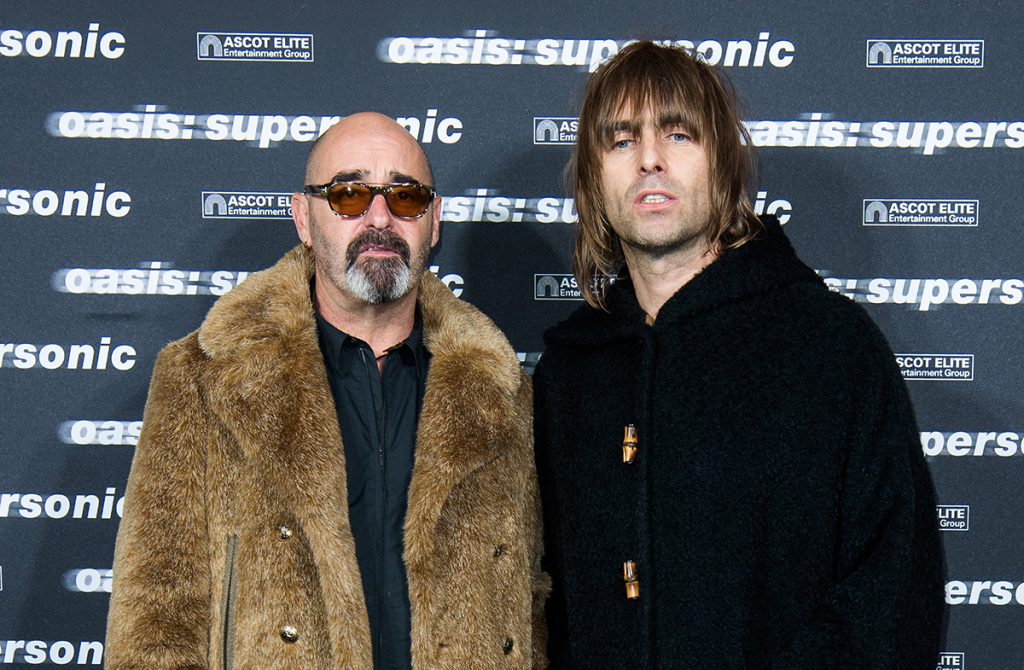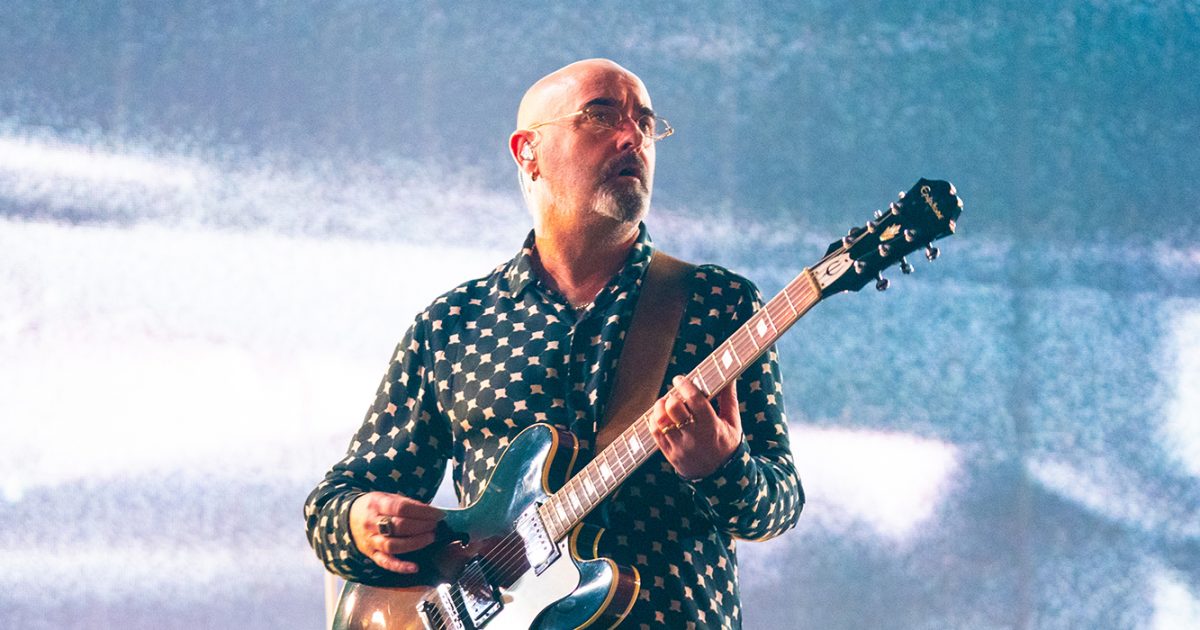Bonehead's Tonsil Cancer Diagnosis
- Paul "Bonehead" Arthurs, founding member of popular English rock band Oasis, announced on Tuesday that he's been diagnosed with tonsil cancer, a type of throat/head and neck cancer.
- The 56-year-old also said he'll be "taking a break from playing for a while," which means he won't be appearing with Oasis frontman Liam Gallagher, 49, at concerts scheduled for this summer.
- Bonehead shared that he’ll be starting treatment soon.
The 56-year-old former Oasis guitarist from Manchester, England, also said he'll be "taking a break from playing for a while," which means he won't be appearing with Oasis frontman Liam Gallagher, 49, at concerts scheduled for this summer.
Read MorePaul Arthurs. (@BoneheadsPage) April 26, 2022
The type of treatment Bonehead will undergo remains unknown.
"I'll keep you posted (on) how it's going," he added. "I'm gutted I'm missing the gigs with Liam and the band. Have the best summer and enjoy the gigs if you're going, I'll see you soon xxx (sic)"

To let Bonehead know he has a friend, Gallagher tweeted: "Sending BIG love to the 1 n only Bonehead and his family wishing you a speedy recovery we're all thinking of you rasta you'll be back on stage bfore (sic) you can say r we doing (Oasis song) Colombia LG x"
Sending BIG love to the 1 n only Bonehead and his family wishing you a speedy recovery we're all thinking of you rasta you'll be back on stage bfore you can say r we doing Colombia LG x
Liam Gallagher (@liamgallagher) April 26, 2022
Bonehead made the decision to leave Oasis in 1999, saying that he wanted to spend more time with his family. His first child, Lucy, was born in January 1995 and his son, Jude Arthurs, was born in August 1997, so they were still young when their dad decided to leave the band.

However, Bonehead has continued working with Gallagher on various side and solo projects over the years, including replaying Gem Archer on guitar in the band Beady Eye.
Understanding Throat Cancer
Throat cancer is a type of head and neck cancer; cancerous cells begin in the throat, voice box or tonsils, causing throat cancer. In Bonehead’s case, cancer was found in his tonsils.
It’s much more common to know someone who has throat cancer now-a-days than it was several decades ago. That’s because of the strong connection between throat cancer and the human papillomavirus, or HPV, which is the most common sexually transmitted infection in the United States. It’s unknown what caused Bonehead’s throat cancer, but medical experts say that HPV causes more than 90% of throat cancers.
HPV and Cancer Risk: The Basics
"From the 1980s to the 2010s, the rate of HPV-related head and neck cancers has gone up by 300 percent," Dr. Ted Teknos, a head and neck cancer specialist, and president and scientific director of University Hospitals Seidman Cancer Center in Cleveland, Ohio, told SurvivorNet during a previous interview.
The vast majority of humans in the United States both men and women will eventually get infected with HPV, according to Dr. Allen Ho, a head and neck surgeon at Cedars-Sinai.
"The important thing to know about HPV is that there are many different strains, and only a couple of them tend to be more cancer-inducing," he said. "Probably less than 1 percent of the population who get infected happen to have the cancer-causing virus that somehow their immune system fails to clear, and over 15 to 20 years it develops from a viral infection into a tumor, and a cancer."
It’s unclear whether HPV alone is enough to trigger the changes in your cells that lead to throat cancer, or whether this happens in combination with other risk factors like smoking. Of course, some people who develop throat cancer have no known risk factors for the condition. Genetics can play a role in this cancer, too. It’s unclear if Bonehead has a history of smoking, or whether he has a history of cancer in his family.
Why the HPV Vaccine is so Important in Preventing Cancer
Throat cancer is unique in that it’s usually preventable with the HPV vaccine. And that’s why those eligible should get vaccinated against HPV, SurvivorNet experts say.
The vaccine is typically given to children before they are sexually active, as HPV is transmitted through sexual contact.
And contrary to some detrimental misinformation circulated online, the HPV vaccine is entirely safe.
There are virtually no side effects with this vaccine, Dr. Jonathan Berek, director of the Women's Cancer Center at Stanford Medical Center, previously told SurvivorNet.
It is "incredibly safe," he added.
Learn more about SurvivorNet's rigorous medical review process.


